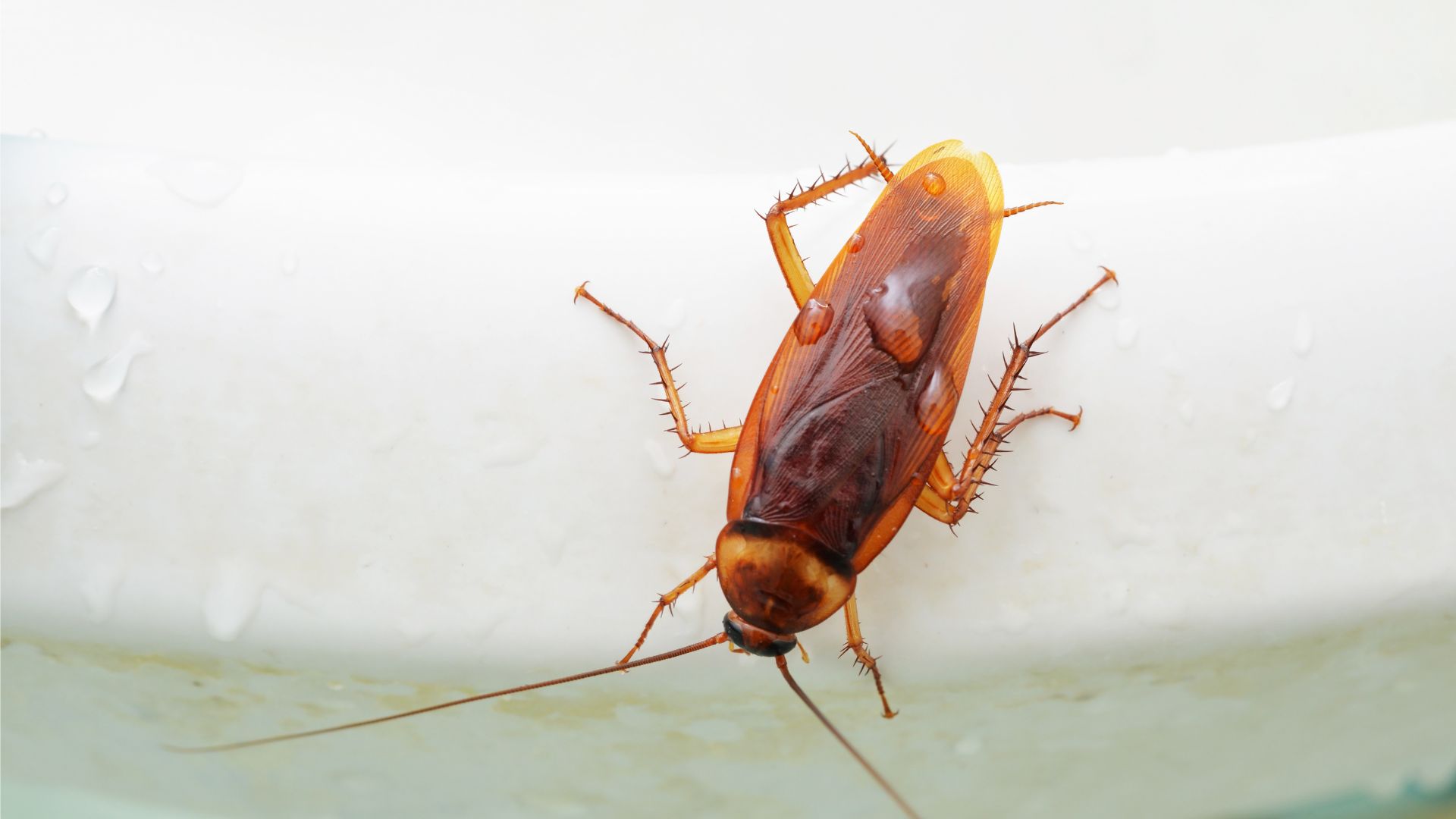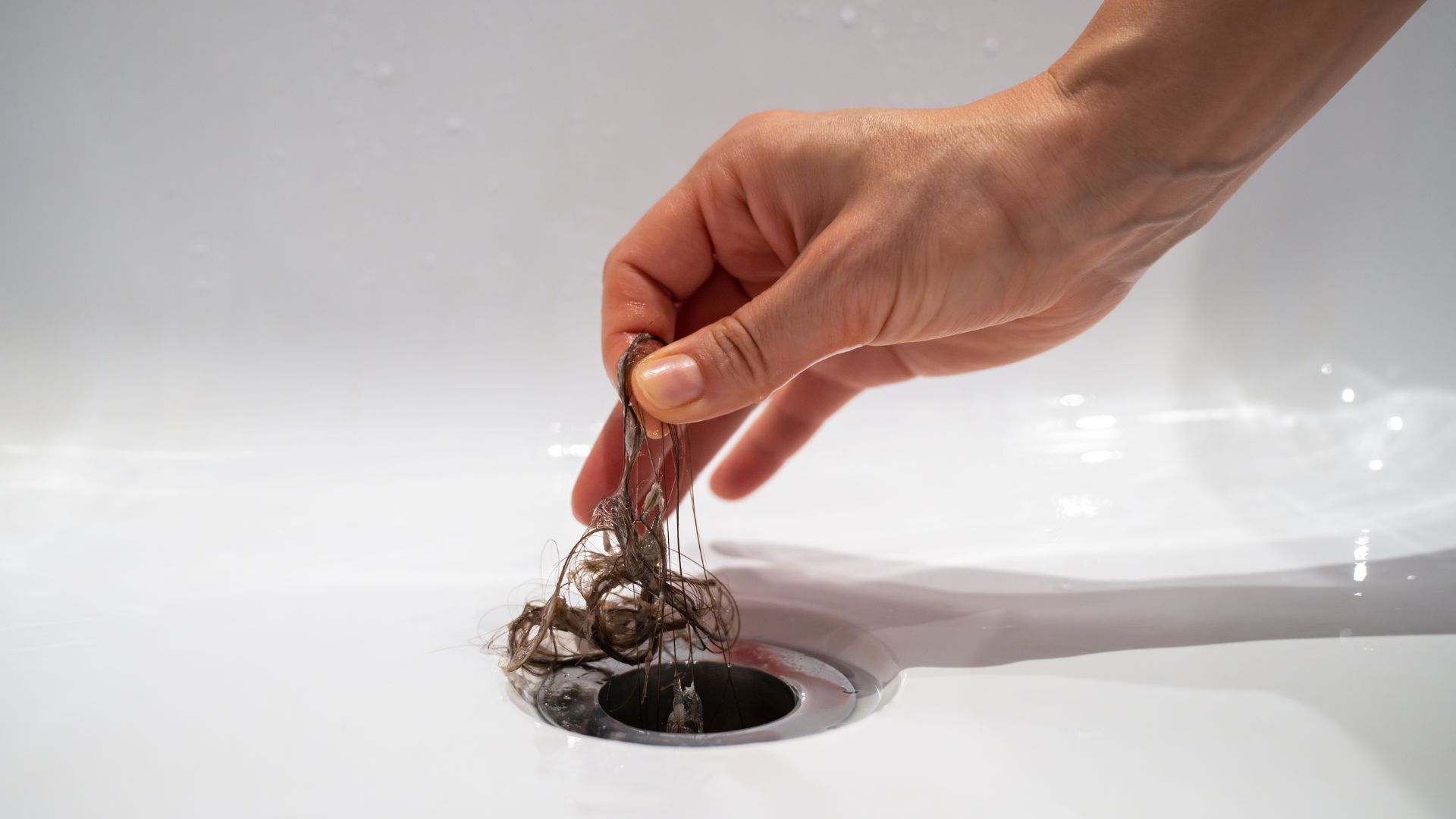Around 20% of household pest infestations are linked to issues in the plumbing system, with blocked drains being one of the most overlooked causes. While a slow drain or bad smell might seem like a minor nuisance, drain blockages can quietly create the ideal environment for pests to thrive, long before you even realise they’ve moved in.
In many homes, blocked pipes go unnoticed until the problem escalates. What starts as a bit of food waste or hair trapped in the pipes can quickly become a hidden hub for cockroaches, rodents, drain flies and more. These invaders are drawn to the moisture, warmth, and organic build-up that clogged drains provide.
Because blocked drains attract pests silently and steadily, they often become a breeding ground before any visible signs appear. Knowing what’s happening beneath your sinks and showers is the first step to protecting your home from an avoidable infestation.
Can Blocked Drains Attract Pests or Insects Into Your Home?
Blocked or clogged drains disrupt your drainage system and can trigger serious pest infestations. When water and organic waste can’t flow freely, they stagnate in your drain pipes, creating the perfect storm for unwanted guests.
The combination of stagnant water, decaying food particles, and damp, dark spaces makes blocked drains highly attractive to pests. Drain flies, cockroaches, rats, and even mosquitoes can make a home in the filth accumulating out of sight. These pests are not just a nuisance—they carry diseases and bacteria that pose real health hazards to you and your family.
Here’s why blocked drains become a magnet for pests:
- Stagnant water serves as a drinking and breeding source.
- Food debris caught in the pipe becomes a feeding ground.
- Sheltered conditions inside drains protect pests from predators and light.
- Internal sinks and outdoor stormwater drains are equally vulnerable.
- Poor drain covers or cracked pipes provide easy entry points.
Ignoring early signs can result in not only a pest problem but also costly repairs to the plumbing system. Proper waste disposal and regular drain monitoring help reduce these health risks before they escalate.

Why Blocked Drains Attract Pests
Understanding how blocked drains attract pests starts with recognising the ideal environment they create for insects and rodents to thrive. When your drainage system fails to flow freely, problems build up fast.
1. Stagnant Water and Moisture
Blocked or clogged pipes trap stagnant water, which becomes a reliable water source for pests. The warmth and humidity inside drain pipes make them comfortable nesting sites for insects like drain flies, creating significant health hazards if ignored.
2. Food Scraps and Organic Debris
Hair, food waste, and grease that settle in clogged drains provide nourishment for pests. These scraps fuel pest infestations, especially in places lacking regular drain maintenance or proper waste disposal.
3. Dark, Hidden Shelter
Inside the pipes, away from light and foot traffic, pests find the perfect hideout. Without secure drain covers, they can enter and breed undisturbed in this enclosed space.
The more waste and moisture inside the system, the faster it becomes a breeding ground for pests. If left untreated, this can escalate into a full-blown infestation, causing health risks, costly repairs, and damage to drainage. Poor maintenance is one of the leading causes of health hazards in homes due to pest attraction.
Common Pests Attracted to Blocked Drains
Blocked drains can quickly attract pests searching for food, shelter and water. Here are the most common invaders that thrive in these conditions.
1. Cockroaches and Blocked Drains
Cockroaches flourish in moist areas filled with food debris and foul odours. These pests carry harmful pathogens and often gain entry through sink holes or small cracks in the sewer line. Once inside, they multiply rapidly and threaten human health, particularly in kitchens and bathrooms.
2. Rats and Mice Love Clogged Drains
Rodents exploit broken joints in the sewer line or decaying pipes. Drawn to food particles and standing water, these unwanted pests gnaw through insulation and household materials. Their presence leads to significant plumbing issues and increases the risk of indoor contamination.
3. Drain Flies: A Breeding Ground Favourite
Drain flies breed in sludge lodged within blocked drains. Their eggs hatch in the organic waste trapped in damp, stagnant conditions. Without treatment, infestations can spread throughout bathrooms and kitchens, often accompanied by toxic fumes when decaying matter is disturbed.
4. Mosquitoes and Stagnant Water
Mosquitoes use stagnant water in blocked outdoor drains to complete their breeding cycle. Pools that form in clogged systems create ideal conditions for larvae. These insects carry diseases such as Ross River virus, posing a genuine threat to human health.
5. Spiders Feeding on Drain-Inhabiting Insects
Venomous species like funnel-webs and redbacks are drawn to the insects inhabiting blocked drains. Outdoor drainage areas near walls and gardens offer the perfect hunting ground. Their presence increases health concerns, particularly for households with children or pets.
Blocked drains don’t just smell bad—they invite danger. Left unchecked, they create a ripple effect of health risks and long-term problems.
Drain Blockages and Health Hazards
Drain blockages do more than cause inconvenience; they contribute to serious health concerns inside the home. When water flow is disrupted, organic waste accumulation becomes a magnet for bacteria and fungi. Over time, this waste turns into the perfect breeding ground for mould and other harmful microbes.
Humidity levels can spike in affected areas, especially in kitchens, bathrooms or laundries. This excess moisture encourages mould spores to spread, which may worsen asthma or trigger allergic reactions.
Pests such as rats and cockroaches thrive in these environments. Once inside, they easily access food prep areas, bringing bacteria that can spread diseases.
Common signs linked to drainage issues and poor indoor conditions include:
- Musty odours lingering near sinks or shower drains
- Visible mould on walls or cabinetry
- Poor air circulation in rooms with broken pipes or persistent moisture
- Increased respiratory symptoms in family members
According to recent property inspections, homes with long-term plumbing neglect showed a 60% higher rate of pest activity and mould-related health complaints. Addressing blockages early protects your pipes and helps maintain a safe and healthy living environment.
Early Warning Signs You Shouldn’t Ignore
Blocked drains often start small, but the warning signs can escalate quickly if overlooked. Identifying these early indicators helps stop minor plumbing problems before they become major disruptions.

Keep an eye out for:
- Slow drainage in sinks, showers or floor drains, often a result of hidden drain clogs
- Foul smells near drain openings, especially where water and organic matter build up
- Gurgling noises coming from pipes, signalling trapped air caused by partial blockages
- Sudden insect activity, which may point to a growing drain fly problem
- Damp patches or mould on walls or cabinetry, commonly linked to undetected leaks
Neglected issues like these tend to snowball. What begins as a bit of organic matter collecting in pipes can result in structural damage, pest infestations, and costly repairs. Staying alert to these symptoms ensures your drainage stays clear and your home remains protected.
How to Prevent Drain Blockages and Keep Pests Out
Clogged drains are one of the most common causes of pest infestations and associated health risks in homes. Fortunately, a few simple habits and some preventative maintenance can significantly reduce the chances of plumbing issues and pest activity.
Here’s how to prevent blockages and keep your drains clear:
- Pouring hot water mixed with vinegar down the drain weekly helps dissolve organic clogs and keep pipes flowing
- Use mesh strainers in kitchen sinks and shower drains to catch hair, food scraps, and debris before they enter the pipes
- Avoid pouring fats, oils, or grease down any sink—these harden in pipes and are difficult to dissolve later
- Inspect less-used drains like laundry tubs or garage sinks regularly to catch early signs of build-up
- Use chemical drain cleaners sparingly—they may help in emergencies, but are not a long-term fix
Clean drains also reduce the risk of food contamination from pests attracted to decomposing waste. Regular maintenance and sensible habits protect your plumbing and your home environment, stopping pest issues before they start.
When DIY Isn’t Enough: Getting Help for Blocked Drains
Chemical drain cleaners and home fixes like baking soda can help with mild blockages but rarely solve deeper issues. Overusing harsh drain cleaners can corrode pipes or push debris and tree roots further into the system. If left untreated, these blockages may create a serious health hazard and invite pests.
Professional plumbing services use advanced tools like cameras and hydro-jetting for accurate, lasting results. They can also install drain covers and suggest long-term preventative measures to maintain clear drains. Early intervention from professional plumbers and timely pest control is key to stopping problems before they escalate.
Choose Prevention Over Pest Panic
Blocked drains do more than disrupt water flow, they attract pests, create health risks, and lead to costly damage. Simple plumbing oversights can escalate into full-blown infestations, affecting your home and your well-being. Staying on top of maintenance is far easier than dealing with rodents, insects, or contaminated spaces later on.
Prevention is always the smarter choice: it’s quicker, less stressful, and far more affordable than reactive pest treatments and emergency plumbing repairs.
If you’ve noticed slow drains, foul smells, or signs of pests, don’t wait. The team at Fixed Today is ready to clear blocked drains and stop pests in their tracks. Contact us today and restore peace of mind—before uninvited guests move in.














